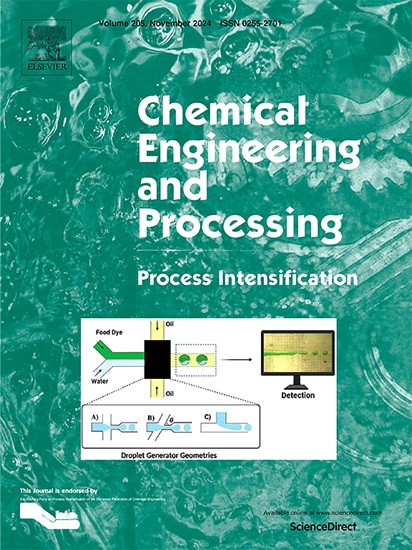Advancing E-fuels production through process intensification: overcoming challenges and seizing opportunities for a sustainable energy future - A critical review
IF 3.8
3区 工程技术
Q3 ENERGY & FUELS
Chemical Engineering and Processing - Process Intensification
Pub Date : 2025-02-01
DOI:10.1016/j.cep.2024.110107
引用次数: 0
Abstract
The global transition toward sustainable energy emphasizes e-fuels as a promising alternative to fossil fuels, particularly in sectors that are difficult to decarbonize, such as aviation and heavy industry. E-fuels are produced via the Power-to-Liquids (PtL) process, which converts renewable electricity into hydrogen through water electrolysis or other sources, such as methane or biogas reforming, followed by the synthesis of hydrocarbons and other carbon-based compounds using captured CO2. Despite their potential, e-fuels face challenges such as high production costs and energy-intensive processes. Process Intensification (PI) offers a pathway to address these challenges by optimizing chemical processes to enhance efficiency, lower costs, and reduce environmental impact. Key areas of PI innovation include advancements in electrolysis technologies, catalyst development, reactor design, and carbon capture methods. These innovations are crucial for improving the efficiency of hydrogen and carbon-based fuel production, decreasing costs, and minimizing greenhouse gas emissions. Furthermore, PI facilitates modular and scalable production systems that integrate seamlessly with renewable energy sources, reducing the need for fuel transportation and associated emissions. This paper explores the challenges and opportunities presented by PI, emphasizing its critical role in advancing the production of e-fuels and positioning them as a key component of a low-carbon energy future.

求助全文
约1分钟内获得全文
求助全文
来源期刊
CiteScore
7.80
自引率
9.30%
发文量
408
审稿时长
49 days
期刊介绍:
Chemical Engineering and Processing: Process Intensification is intended for practicing researchers in industry and academia, working in the field of Process Engineering and related to the subject of Process Intensification.Articles published in the Journal demonstrate how novel discoveries, developments and theories in the field of Process Engineering and in particular Process Intensification may be used for analysis and design of innovative equipment and processing methods with substantially improved sustainability, efficiency and environmental performance.

 求助内容:
求助内容: 应助结果提醒方式:
应助结果提醒方式:


